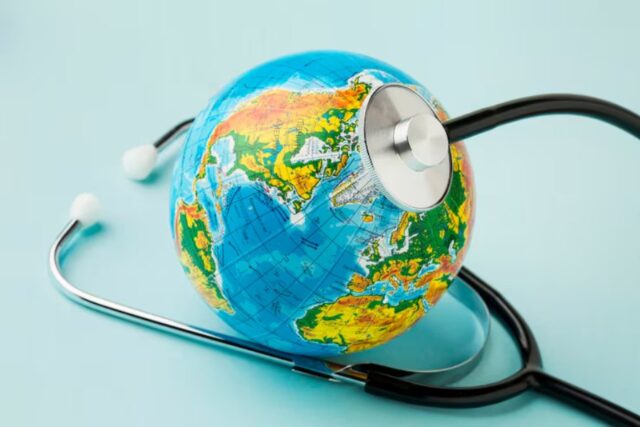The World Health Organization (WHO) plays a vital role in safeguarding global health by overseeing and managing health crises across the globe. One of the most significant powers the WHO holds is the authority to declare an outbreak a global health emergency. But who has the responsibility to declare these global health emergencies, and why is this so critical for worldwide health? This declaration triggers immediate international responses and sets the foundation for coordinated efforts across countries to control and mitigate the spread of diseases.
In this article, we’ll explore how the WHO declares an outbreak a global health emergency, the far-reaching effects it has on global health policies, and the roles that governments, organizations, and the public play in responding. From pandemics to regional health crises, the WHO’s declaration serves as a global call to action.
We will examine the underlying reasons for these declarations, the criteria used by the WHO, and the lasting impact on global health systems, emphasizing the role of the WHO in shaping global health policy and response strategies.
Who declares an outbreak global health emergency?
The World Health Organization (WHO) declares a global health emergency. This declaration is made when an outbreak poses a significant risk to public health across borders and requires an international response. The WHO assesses various factors, including the spread of disease, its potential impact, and the capacity of countries to handle the crisis. The declaration often leads to coordinated global actions to prevent further spread and mitigate the impact of the outbreak.
The WHO’s Critical Role in Global Health Emergencies
The World Health Organization (WHO) is vital in managing global health crises, offering leadership, guidance, and technical support to countries during outbreaks. A key function of the WHO is declaring an outbreak a Public Health Emergency of International Concern (PHEIC), a decision that holds significant consequences for global health systems.
The WHO makes this declaration after evaluating various factors, such as the geographic spread of the outbreak, the severity of the disease, its potential to cross borders, and its impact on vulnerable populations. A global health emergency declaration triggers international protocols that call for a collective response from nations worldwide.
The WHO collaborates with governments, health organizations, and researchers to mobilize resources, coordinate efforts, and provide support to affected areas. This includes offering financial aid, sharing medical expertise, and facilitating emergency health measures to contain the spread. By activating these emergency measures, the WHO ensures a swift, organized global response to mitigate the crisis’s impact and safeguard public health across borders. If you’re planning a new health initiative or global health campaign, consider using Stylish Names to enhance your project’s identity and outreach efforts.
Criteria for Declaring a Global Health Emergency
Declaring an outbreak a global health emergency is a significant decision that the World Health Organization (WHO) does not take lightly. Several factors are carefully evaluated before making such a declaration, ensuring that the outbreak meets specific criteria.
Spread and Transmission
The first criterion is the outbreak’s ability to spread beyond national borders. The disease must show a significant risk of international transmission, meaning it could easily spread from one country to another, posing a threat to global public health.
Severity of the Disease
The disease’s impact on public health is also a key factor. The WHO considers both the number of cases and the severity of the illness it causes. The disease must have a substantial effect on individuals’ health, making it a threat to both local and global health systems.
Potential for International Impact
An outbreak must pose a significant risk to global health, necessitating international cooperation to prevent further spread. The outbreak should require a collective, coordinated response from multiple countries and organizations to effectively manage it.
Public Health Risk and Vulnerability
The WHO also assesses the risk to vulnerable populations and the capacity of countries to handle the outbreak with their existing health infrastructures. Vulnerable groups, such as the elderly and immunocompromised, are given particular consideration in this evaluation.
What Happens After the WHO Declares a Global Health Emergency?
Once the WHO declares a global health emergency, several steps are taken:
- International Coordination: Governments and international health organizations collaborate to contain the outbreak, sharing resources, information, and expertise.
- Funding and Support: Countries and international organizations provide financial support to help affected regions, particularly those with limited resources.
- Public Awareness Campaigns: Efforts are made to raise awareness about the outbreak, educate the public on preventive measures, and reduce the spread of misinformation.
- Travel and Trade Restrictions: Countries may implement travel advisories or restrictions to prevent the outbreak from spreading further.
How Does the WHO’s Declaration Influence Global Health Policies?
When the WHO declares a global health emergency, it has significant implications for global health policies. This declaration often triggers changes in both national and international regulations, leading to coordinated efforts to control the crisis. Here’s how the declaration influences global health policies:
- Health Security and Surveillance: Governments typically enhance their surveillance systems to track the spread of the disease more effectively. This helps countries monitor outbreaks in real-time and respond swiftly to prevent further transmission.
- Strengthening Health Systems: Health systems are bolstered to manage the increased number of cases. This includes improving hospital preparedness, ensuring adequate medical supplies, and strengthening the healthcare workforce to deal with a surge in patients.
- Collaboration and Research: A global health emergency declaration leads to increased collaboration between countries, researchers, and health organizations. This helps accelerate research for cures, vaccines, and treatments, which are crucial for managing the outbreak.
- International Treaties and Agreements: In response to a global health crisis, the WHO’s actions often result in new international treaties or agreements aimed at enhancing global health security and preparedness for future emergencies.
Examining WHO Global Health Emergency Declarations
To better understand the impact of the WHO’s declarations, let’s look at some notable case studies:
The COVID-19 Pandemic
In January 2020, the WHO declared COVID-19 a global health emergency. This declaration marked the beginning of a worldwide effort to contain the virus, with unprecedented public health measures implemented globally. It prompted governments to adopt lockdowns, travel bans, and intensive healthcare mobilization.
The Ebola Outbreak (2014)
In 2014, the WHO declared the Ebola outbreak a global health emergency. The declaration helped mobilize international support, leading to rapid interventions in affected countries and the eventual containment of the outbreak.
Zika Virus (2016)
The Zika virus outbreak was another instance where the WHO declared a global health emergency, prompting research on its links to birth defects and the development of guidelines for prevention.
Conclusion
The declaration of a global health emergency by the WHO plays a pivotal role in international health crises. It sets in motion a coordinated global response, involving governments, health organizations, and the private sector. By understanding the criteria and processes behind these declarations, we can better appreciate the importance of international cooperation in protecting public health.
In essence, the question of who declares outbreak global health emergencies is answered by the World Health Organization, whose actions shape the global response to pandemics and outbreaks. The WHO’s leadership in times of health crises highlights the need for global solidarity in safeguarding public health.
FAQ’s
Who declares an outbreak a global health emergency?
The World Health Organization (WHO) declares an outbreak a global health emergency when it poses a significant risk to public health across borders.
What criteria does the WHO use to declare a global health emergency?
The WHO evaluates the spread, severity, and potential international impact of a disease, as well as the public health risks to vulnerable populations.
How does the WHO’s declaration affect international policies?
The declaration leads to international coordination, funding for affected regions, enhanced surveillance, and changes to health policies to manage the crisis.
What happens after the WHO declares a global health emergency?
It triggers immediate international response efforts, including public health measures, travel restrictions, and the mobilization of resources and funding.
How does the WHO’s decision to declare an emergency impact global health systems?
The declaration prompts increased collaboration and research, strengthens health infrastructures, and enhances preparedness for future health crises.














